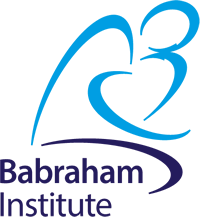About the Project
How cell fate is established in early mammalian development and how it degrades during the process of ageing are fundamental questions in biology. We are studying cell fate decisions from fertilisation to gastrulation, and loss of fate in the ageing organism. While signaling systems, mechanical forces, transcription factors, and epigenetic regulation are all implicated in cell fate decisions, how these systems integrate information to switch cell fate is not known. You will use state of the art single cell multi-omics methods to interrogate individual cells as they make decisions to become particular cell types, or as their identity or function degrades. You will use CRISPR/Cas genome and epigenome editing to manipulate epigenetic regulators and marks to understand their impact on cell fate and ageing.
In order to understand the integration of epigenetic regulation and transcription during differentiation we have developed single cell sequencing methods which interrogate the transcriptome, methylome, and chromatin accessibility in the same single cell. Novel computational and statistical algorithms begin to connect transcriptional with epigenome variability, for example at the level of enhancer or promoter methylation and nucleosome accessibility. An important question is which epigenetic marks could be instructive for differentiation and which epigenetic marks lock differentiation states in instead. You will systematically catalogue this combined single cell information in thousands of cells, building up an exciting and informative map of epigenetic and transcriptional transitions leading up to gastrulation and early organogenesis. Alternatively, if you are more interested in ageing, you will ask questions about how epigenetic information degrades in cells as we age, potentially in a regulated fashion.
You will next formulate hypotheses about epigenetic regulation of key developmental or lineage specific genes. You will then manipulate specific epigenetic factors in ES cells and embryos by CRISPR/Cas targeting and monitor differentiation both in in vitro models and in vivo embryo systems. You will also manipulate epigenetic states of interesting regulatory regions such as enhancers or promoters directly by CRISPR/Cas epigenome editing, and examine effects on differentiation in vitro and in vivo. Regarding ageing, you will use similar techniques to understand epigenetic ageing programmes and manipulate these with the aim of rejuvenating cells and organisms.
You will be part of an interactive and collaborative team in our lab, in the Epigenetics Programme at the Babraham Institute, the Sanger Institute, and the Stem Cell Institute. This will help you with diverse approaches and techniques such as stem cell and embryo work, single cell sequencing, bioinformatics, computational and statistical approaches, and CRISPR/Cas techniques.
References
Branco et al 2016 Dev Cell, Angermueller et al 2016 Nature Methods, von Meyenn et al 2016 Mol Cell, von Meyenn et al 2016 Dev Cell, Mohammed et al 2017 Cell Reports, Berrens et al 2017 Cell Stem Cell, Kelsey et al 2017 Science, Clark et al 2018 Nature
Communications, Rulands et al 2018 Cell Systems, Argelaguet et al 2019 Nature, Eckersley-Maslin et al 2020 Nature Struct Mol Biol, Alda-Catalinas et al 2020 Cell Systems.

 Continue with Facebook
Continue with Facebook

